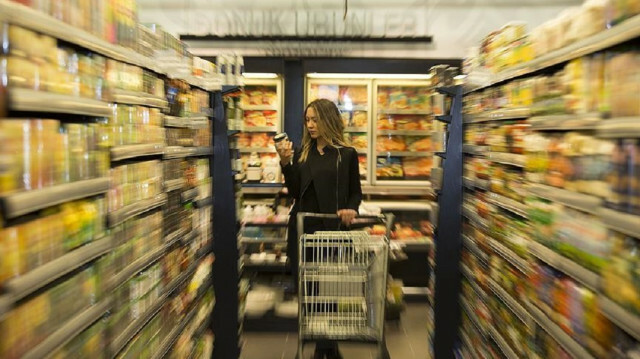
Deposit refund system needs to be implemented immediately in a way that will cover all packaging types, says Sedat Gundogdu
Marking "insufficient steps" for waste disposal, a Turkish expert said that people should give up "non-cyclical and unsustainable consumption habits".
Speaking to Anadolu Agency on the occasion of the World Environment Day, observed annually on June 5 to encourage global awareness and action for the protection of the environment, Sedat Gundogdu, an expert on plastic waste, talked about waste-related threats to environment as well as waste management in Turkey's Adana case.
Warning against the big threat waste poses to people as well as the environment, he said that an ecological crisis that occurs at one area is not limited to that place and affects different geographies.
"Incineration of waste produces various toxic gases such as persistent organic pollutants or heavy metals. We know that all of these are not confined to the burned areas, but are included in the food chain or reach out more distant areas via atmospheric events such as wind," he said.
Gundogdu, who is also a lecturer at Cukurova University in Adana, southern Turkey, exemplified that dioxins which emerged from plastics burned in Europe and Asia in the past were found even in the blood of penguins in the pole.
- Plastic waste issue in southern Turkey
Adana once again drew attention last month over the footages and photos of large amount of waste that came from the UK.
Following these images, there were a number of reports that those waste left in several areas across the province were also burned.
Gundogdu said that the city's proximity to a port and its housing many recycling facilities played an important role in leaving this garbage to Adana.
"We have been saying that this issue turned into a long-standing environmental problem and that the ban imposed by China on waste imports should be implemented in Turkey as well," he said.
Mentioning the recent policy followed by related authorities over the issue, Gundogdu said that recent inspections and steps taken by the Environment and Urbanization Ministry show that the authorities have adopted a firm stance towards this issue in order to avoid such problems in the future.
Imported wastes around Adana were first detected in 2017 through analysis of satellite images, he said, however they even reached the Mediterranean Sea through canals extending to there at the end of 2018.
"When we look at the share of the citizens on this issue on social media, we see that this issue has a history of four years. In our field observations, we also followed the presence of abandoned waste on the edges of irrigation canals and agricultural fields, on roadsides and even in some areas of the city center through local and social media posts," he added.
There has also been an intense waste burning since last year, said Gundogdu.
- 'Waste import should be completely banned'
He said that one of the problems of the waste import, which is prohibited under the Basel Convention and Turkey's domestic law, is relying on the shippers' statements and accepting wastes at the customs without a strict control.
"Recently, we have seen that some wastes, which are banned to be imported, have arrived in Turkey with them marked nonhazardous. We can even say that the waste, including the COVID-19 test tubes, arrived in Turkey illegally," he added.
He claimed that now nearly 10,000 tons of waste from Germany, banned to be imported, are currently held at various ports and there are various attempts by Turkey to it sent back.
"Waste import should be banned completely and all recycling companies should be directed to plastic waste produced in Turkey's domestic market," he said, referring to the difficulties in identification whether waste is harmful or not.
He went on saying that Turkey's own waste is enough for recycling. There are approximately 35 million tons of waste suitable for recycling in Turkey, and up to 20% of it is plastic waste.
Responding to a question on why countries tend to export their waste, Gundogdu underlined that recycling cost of poor-quality wastes that have come into contact with food and the environmental cost that will arise during the disposal are the main reasons.
In the case of exporting, he said that instead of collecting waste from the domestic market with less profit, the importers want to buy it cheaper abroad for more profit.
- From Global North to Global South
"There is an import route from the Global North to the Global South. Studies conducted in both the exporting and importing countries confirm that this route has a colonialist nature," he said, adding that the environmental regulations to be complied with during the disposal of these wastes are quite weak in Eastern countries.
Touching on the urgent steps that could be taken to prevent further waste and pollution issues, he stated that the deposit refund system needs to be implemented urgently in a way that will appeal to all levels of society and cover all packaging types.
"This system is the only step to prevent waste originating from bottles, regardless of whether it is glass, metal or plastic," he stressed.
Another two steps, he said, should be reducing the materials that can cause various environmental problems during waste recycling and collecting wastes at the source separately.
"Also, as in all developed countries, single-use plastics need to be limited," Gundogdu said, warning that unless otherwise, all the steps to be taken regarding the waste disposal or its management will be insufficient after the waste is generated.
He concluded that it will be very beneficial for people to return to their traditional consumption habits from the understanding of "consume fast".
Hello, the comments you share on our site are a valuable resource for other users. Please respect other users and different opinions. Do not use rude, offensive, derogatory, or discriminatory language.
The floor is all yours.








